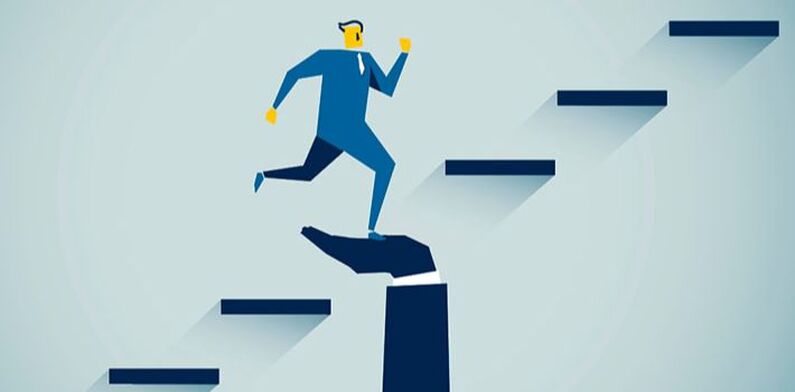|
We talk about mentorship a lot but don't always think about what that really means. Don’t ask me how I got there, but it was two in the morning and I was watching a YouTube video of Robin Williams and Jonathan Winters on the Johnny Carson show in 1991. The top comment was: “This is the only time I ever saw Robin COMPLETLY sit back and let someone else take over. This is how you can tell he really, really, really looked up to him.” While Jonathan Winters is speaking (roughly 14 minutes of the whole interview), Robin Williams makes fewer than ten jokes and speaks for 29 seconds. Park Overall is the third guest. While only in the “hot seat” for about six minutes, Williams makes double the number of jokes, and speaks for 51 seconds. By comparison, when on the Martha Stewart show, Williams doesn’t stop speaking for more than three seconds in the whole five-minute segment (Google at your own risk). Williams once called Winters his mentor, to which Winters told him “don’t say mentor. Call me your idol. Everyone gets that.” He’s right. We talk about mentorship a lot, especially in neurosurgery. We’re all told it’s important to have a good mentor, but we don’t always stop to think more about what that really means or how to foster and contribute to that relationship. How do we talk about mentorship? The Neurosurgical Atlas is a great website with archives of videos showing young and aspiring neurosurgeons various different surgical approaches. It also has a section on how to choose and communicate with a mentor, including a word-for-word email template to send to a prospective mentor. The neurosurgery match website tells you that mentors guide you through the match process, advise and judge your application, and make phone calls if need be. This is all true, but mentors can be much more than that. The theme of the annual Congress of Neurological Surgeons (CNS) conference in 2015 was mentorship. Dr. Nathan Selden: then president, current chair & program director at Oregon Health and Sciences University Department of Neurosurgery, published an address on the multidimensionality of mentorship. In it, he described mentors as “practical leaders with clear instructions” who “communicate well and set clear expectations.” They avoid seizing credit for mentees’ work. They foster and train. However, mentors have more abstract duties as well. Tracing the etymology through Greek literature, as Dr. Selden does, mentors are those who embody reason and critical wisdom. Mentorship involves splitting time equally between directing and guiding, demanding and encouraging, questioning and educating. It “is the best way for us [mentors] to promote our own values and define our own worth.” Implicit in that statement is the idea that mentors can pass on ideals for not just establishing a career, but also how practicing one’s life, balancing all that comes with pursuing a rigorous, technical profession that necessitates so much empathy, passion, enthusiasm, and humanity. This is an enormous responsibility for a mentor to accept and all the more reason to think about how to facilitate a successful mentorship from our standpoint, the mentees. I know Winters was kidding around with Williams, but it’s not a good idea to idolize your mentors. I personally feel that a mentee should never place the burden of the mentor-mentee relationship solely on their mentor. Demonstrate eagerness, attention to detail, inquisitiveness, productivity, desire to learn, desire to advance, and let things evolve from there. Be available – offer to meet between OR cases, late at night, or early in the morning. Be prepared – know your questions in advance and have your own hypothetical answers ready. The best thing you can do to establish a good mentoring relationship is to be flexible and amiable. Be easy to work with and talk to, take criticism on the chin, endorse what you’ve learned, and admit what you haven’t. Present your own ideas and then allow them to undergo natural selection. This is the preachiest that this piece gets, so let’s move away from my opinion and into other peoples’ ideas. What are the barriers to successful mentorship? Dr. Khan and his colleagues assessed 80 programs across the United States in an effort to examine if formal mentorship programs and assigned mentorship relationships had an effect on ACGME outcomes, board pass rates, etc. They found that programs with institutionalized mentorship programs that have been around for five years or more were more likely to yield higher board pass rates, more positive resident impressions, and more scholarly activity than those with “younger” mentorship models. This implicates inexperience as a barrier to mentorship. They also identified that time was the first and most significant barrier to effective mentoring, with faculty and resident buy-in being less important. I would personally challenge that by saying, when there is a finite amount of time, the amount of interest generated in an idea dictates its proportional allotment. We make time for the things that matter, and if there were full buy-in, time would no longer be a barrier. There’s a wealth of research into the cognitive psychology behind “time manipulation,” which we can’t go into here, but a few relevant points include: 1) time availability is a perception, and a feeling of agency or power increases one’s perception of time availability, 2) part of the mechanism by which empowerment reduces stress levels is in part due to perceptions of “more time,” and 3) the regular experience of awe alters the subjective experience of time. Agency and empowerment are easy enough to understand, but that point about awe is particularly interesting. If you love what you do, or at least find things you love in what you do, that mindset of awe and inspiration means that you experience time differently. We probably all know this intuitively from being in an operating room – the concept of flow is not novel. But what if you consciously, actively sought inspiration from your professional relationships as well? And the inverse: for the relationship to work, you need a mentor who demonstrates that they have faith in your ability to not only accomplish tasks, but also to grow and to evolve into a better physician and surgeon. If, as a mentee, you set about building a mentorship relationship with that seed in the back of your mind, it might change how much you get out of it. I’m not naïve enough to argue that there are more than 86,400 seconds in a day, but do think that, in a world increasingly short on free time, our mindset and “buy-in” dictates what we can and can’t make time for. And mentorship should be on the list. How else can we think about mentorship? Social psychology is one lens through which to examine mentorship in neurosurgery; systematic reviews of the literature are another. After querying multiple databases, a group of researchers from England found five papers dedicated to describing and assessing mentorship models in neurosurgery. They found that regardless of mentoring model, collaboration between experienced faculty and vernal residents improved safe practices, patient care, and resident confidence. They found that the varying models had some common underpinnings: cognitive apprenticeship, scaffolding, and simulation. Cognitive apprenticeship is the tandem process of learning a technical craft while being meta about it – employing strategic thinking to critically analyze why we do what we do. It’s a self-conscious practice. Scaffolding instruction dictates that there is a range of tasks that one must learn throughout residency, requiring progressive amounts of skill, and conscious efforts to identify a residents’ skillset and advance them appropriately improves confidence. Simulation is intuitive, and residency programs across the United States employ simulation-based training to improve outcomes in real time. As always, the mindfulness ties in: the more self-aware one is, the more rewards are reaped. Mentorship is something we should seek out mindfully. It’s not just a box we’re supposed to check to “advance our careers” or “match.” Mentorship is symbiotic; the most mutual benefit is derived when we strive to be self-aware about what we bring to the table and what we are given in return. My favorite definition of mentorship is Yoda’s, from The Last Jedi: “we are what they grow beyond.” A syntactic double entendre, it literally defines the mentor as the product of what their protegees become. But it also implies that mentees must grow beyond whatever and whomever inspired them. It’s a daunting and humbling responsibility, but also exhilarating. And that sense of responsibility, of progression and evolution, is what we owe back to our teachers. Oh, and one more thing: here’s Robin Williams celebrating David Letterman’s successful quintuple bypass surgery by appearing in full OR scrub gear and N95 mask. AuthorAndrew Garton, MD Brain & Spine Report is a product of the Brain and Spine Group, Inc. and the statements made in this publication are the authors’ and do not imply endorsement by any other group. The material on this site is for informational purposes only and is not medical advice. Unauthorized reproduction is prohibited. Categories All Comments are closed.
|
Categories
All
Archives
October 2023
|





5/20/2020